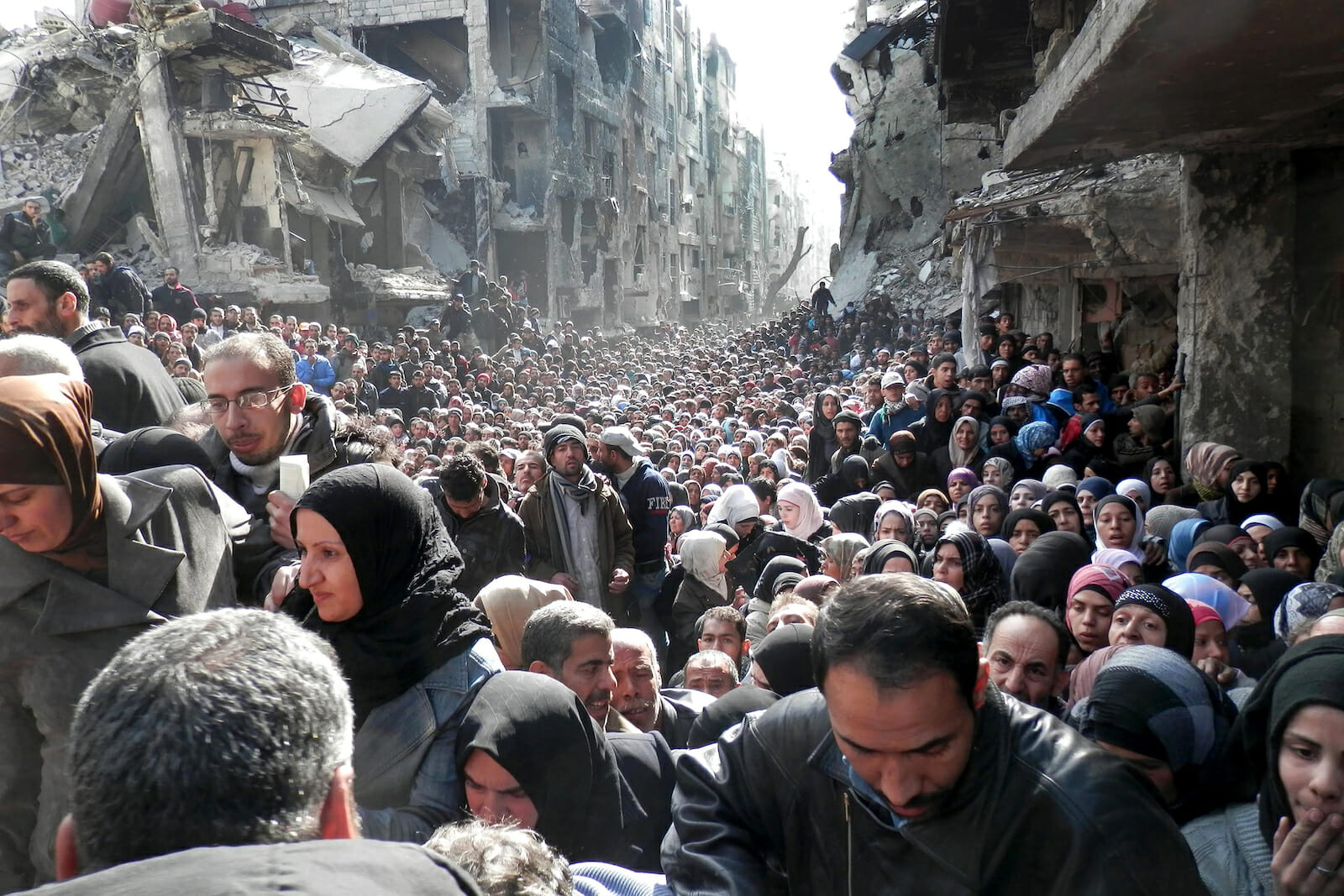
Americans did not Forget about UNRWA, What about their Government?
On December 10th, the United Nations observes Human Rights Day. Since adoption of the Universal Declaration of Human Rights 70 years ago, the UN has been devoted to promoting Human Rights worldwide. For more than 70 years the United Nations Relief and Works Agency (UNRWA) has been – and still is – Palestinians’ main hope for bearable living conditions. More than 5 million Palestinians live with a refugee status in military controlled settlements in Israel, on the ruins of Gaza and the West Bank and cramped refugee camps in Jordan, Lebanon and Syria.
The U.S. has been the largest donor and most reliable partner of the UNRWA since the agency’s foundation in 1949. At the beginning of 2018, the Trump administration stopped all U.S. funding for the UNRWA, a cut of 30% of its budget. This shortsighted policy harms America’s image. It plays into the hands of Middle Eastern terrorist groups, radicalizing local populations against America. By resuming funding for the UNRWA, the U.S. will restore its role of a humanitarian response, its reputation for fairness, and help bring Israeli and Palestinian officials back to the negotiating table. And most importantly, the U.S. will support millions of vulnerable people and save thousands of lives.
The U.S demands more transparency in UNRWA operations. The U.S. has every right to insist on revision of the agency’s activities, however, withdrawing funding does not help. There is always a space for discussion between long-time partners. U.S. humanitarian professionals can work together with the UNRWA to meet the needs of the refugees in more efficient way.
The UNRWA is a stabilizing force in a region torn apart by political and religious confrontation. The agency ensures access to education for half a million Palestinian children. It builds capacity of thousands of teachers and medical workers, and creates jobs for them. It helps thousands of young Palestinians find a job through its vocational training programs and livelihood projects.
UNRWA work is critical for vulnerable refugees. The agency cares for tens of thousands of refugees with disabilities. It provides critical medical services for millions of patients, who otherwise wouldn’t have access to life-saving treatment. It creates and runs women’s centers, promoting gender equality and preventing violence against women and girls.
The UNRWA promotes human rights and opposes all forms violence. It educates the public about respect for ethnic, religious and gender diversity in learning programs across schools and training centers. The agency partners with and strengthens local community organizations, which help Palestinians participate in civil life and overcome inequality.
Can the UNRWA become more effective and transparent? Certainly, and the U.S. can strengthen the agency by setting rigorous reporting policies. The U.S. can deploy its monitoring specialists to oversee UNRWA’s operations and budget spending. The U.S. can try to provide aid for the Palestinian refugees directly — but building new infrastructure always requires more efforts and resources than sustaining and reforming the existing system.
Israel, backed by the Trump administration, criticizes the UNRWA for indirectly supporting an extremist culture among Palestinians seeking to restore their control over lost territories. In reality, stopping U.S. funding for the UNRWA diverts Palestinians from the peace dialogue, as they perceive that the U.S. is taking sides against them. A balanced and neutral position is central to the success of the U.S. as a mediator.
The UN observes November 29th as the International Day of Solidarity with the Palestinian People. And the world community has not left the UNRWA on its own. The European Union, Saudi Arabia, Kuwait, United Arab Emirates and Qatar, have significantly increased their funding for the agency. While private U.S. citizens have donated almost $4 million dollars. Yet the funding deficit persists.
A resumption of U.S. funding of the UNRWA will be a big step in improving dialogue between Palestinian and Israelis. It will help the U.S. stabilize the Middle East by supporting millions of refugees, and show the world that the United States is committed to goodwill to all people, and is committed to peace.
